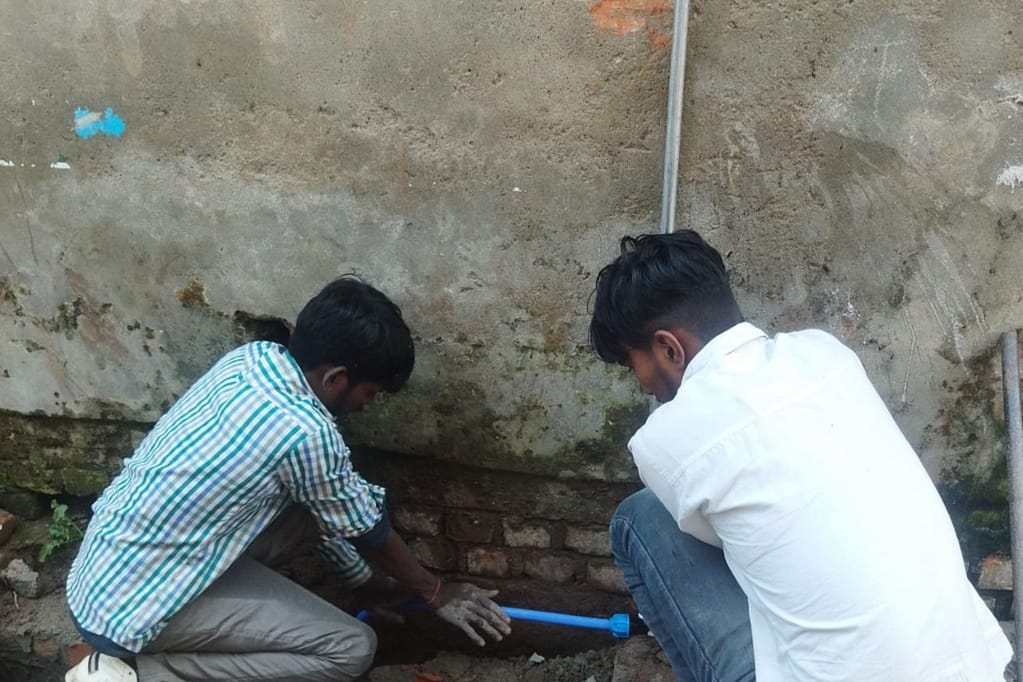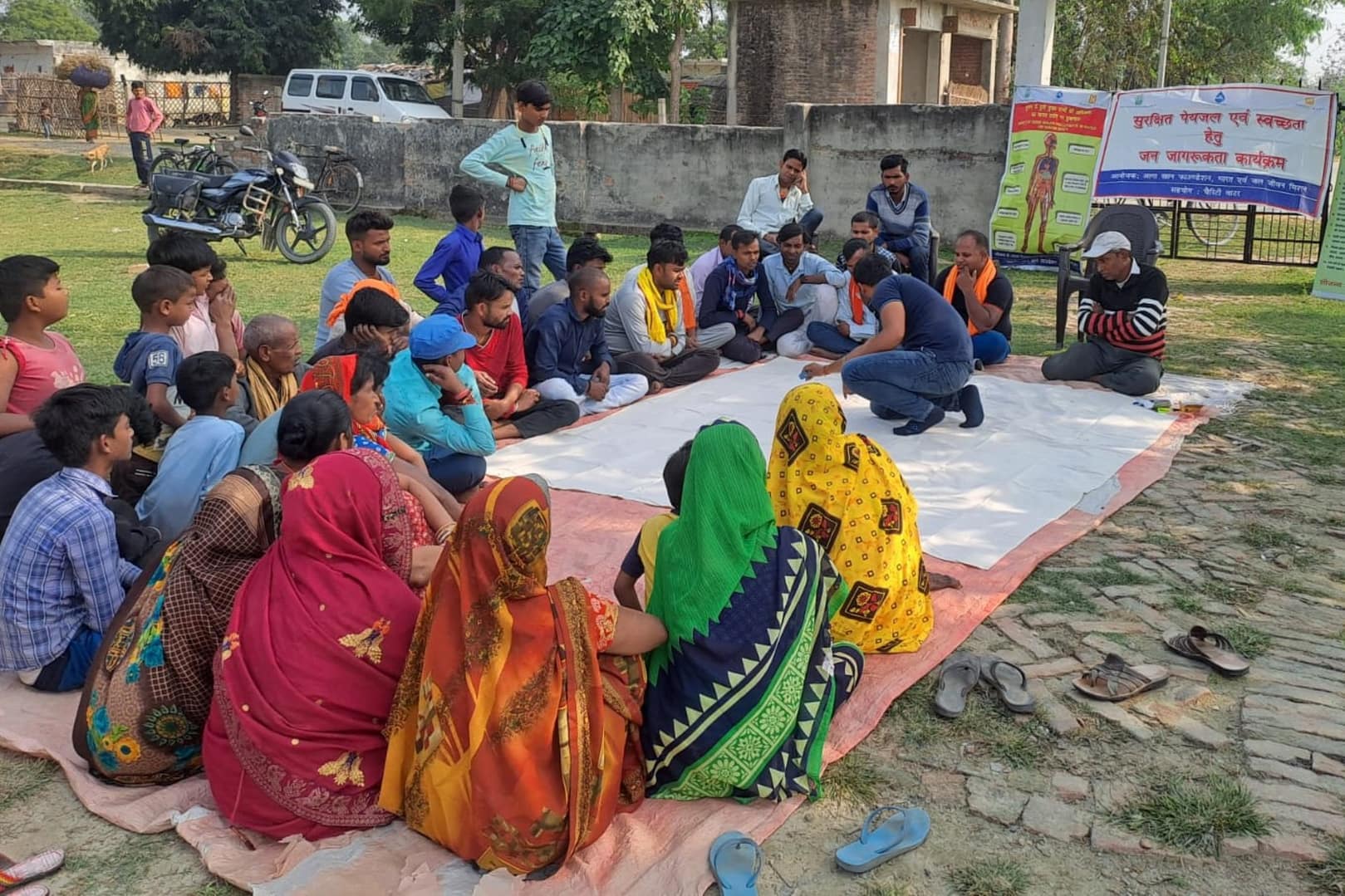In the spring of 2023, The White Feather Foundation community of supporters donated funding to support a clean water project in Uttar Pradesh, India. Today, we’re pleased to share a progress report from our partners at charity:water.
The Gift That Grew
Our original donation funded 34 piped system tap stands—that has now been elevated by additional donations from the charity:water community to be put to work as part of a larger grant, which enables us all to help more people.
Hard at Work
The partner implementing the project on-site, the Aga Khan Foundation (AKF), has so far:
- Completed 140 of 219 planned water points.
- Conducted 13 training sessions with 69 teachers on school sanitation and hygiene services.
- Formed and trained 198 Village Water and Sanitation Committees (VWSCs) on their roles and responsibilities.
More About the Area
Concentrated in the Barabanki, Shravasti, and Sitapur Districts of Uttar Pradesh in northern India, the implementation of this project is challenging due to frequent monsoons in their tropical climate. The area also has prevalent groundwater, though it suffers from bacterial and geogenic contamination. AKF carefully designs its rainwater harvesting and solar-powered piped systems to address and mitigate these factors. When choosing where to build a water project, AKF primarily targets low-income or marginalized households, early childhood development centers, primary and secondary schools, and healthcare facilities.

Building Community
AKF uses the Behavioral Change and Interpersonal Communication approach to engage with the local communities. This approach provides training on healthy hygiene and sanitation practices, water system maintenance, and conflict resolution. AKF customizes each approach to the local culture and incorporates local leaders and wisdom. They also encourage and ensure the active participation of women and other socially excluded groups.
To shift hygiene norms, AKF specifically uses the Community-Led Total Sanitation approach. This method engages the entire community in identifying sanitation problems and solutions while seeking to end open defecation practices. AKF will also form a Village Water and Sanitation Committee during this time. Members are from the community, and AKF intentionally prioritizes the involvement of women and people with disabilities. The VWSC will eventually be responsible for maintaining and managing the new water system.
What's next?
As the project grows nearer to completion, our on-site partners will collect photos, complete the remaining planned water points, monitor progress and collect final data for the project completion, which is projected to conclude in 2025.
Photos used with permission, courtesy of charity:water.
If you’d like to donate to future Clean Water projects, start here.


